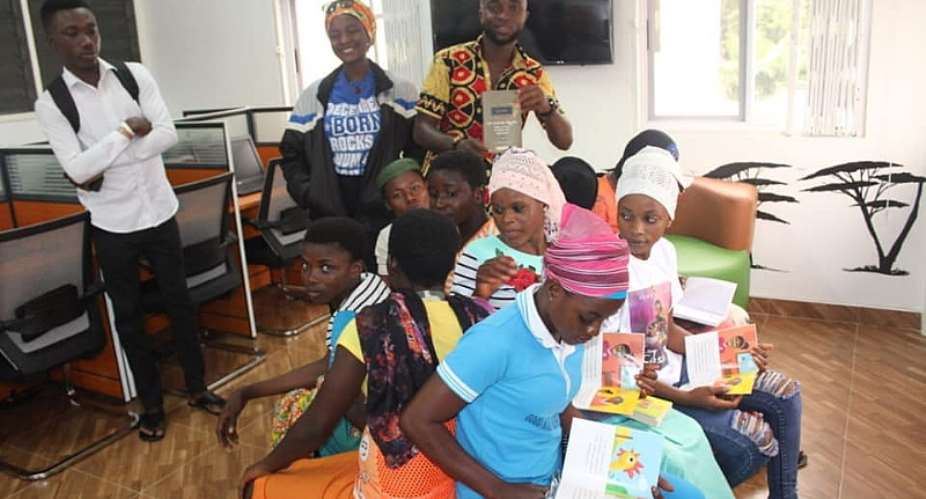Indeed, it is true that over the years teenagers and women have moved in droves mainly from the northern part of the country to the south. These female porters are in dire need of substantial help for survival.
The push and pull factors have included lack of job opportunities, education, market for their produce and social amenities such as good roads, electricity, pipe- borne water and generally good infrastructure.
These female porters who arrive in the cities face many daunting challenges that include rape, defilement, streetism, exploitation by both the people they work for and those who serve as intermediaries or agents to find jobs for these vulnerable women.
Many of these female porters have ended up as prostitutes because that may be the only job opening available to keep body and soul together. A lot of social problems have arisen out of these circumstances.
It is therefore, just right and appropriate that governments have, over the years, put in place policies and programmes to ensure that these female porters have decent lives. Skills training has been organised and is still being pursued and we applaud the government for this intervention.
What baffles me is that, for years many of such programmes have been organised but the country is still grappling with female porters’ problems. Have we, as a country, followed up on those who have been trained to evaluate the impact of the training on their lives?
Some time ago those who were given similar training were encouraged to abandon their deplorable conditions in the urban centres and relocate back to their hometowns to set up. But looking at the ages and the sheer number of female porters in Accra alone, we will not be surprised if those who were beneficiaries of the skills training abandoned their shops and other establishments to relocate back to Accra and other cities.
I say this because in the rural areas it is difficult to get patrons for the services provided. At times too patrons fail to pay for services rendered. I do agree that skills training and other interventions to engage our teeming female youth are the way to go and I advise beneficiaries to take the training seriously, as they cannot engage in porters for the rest of their lives.
However, I reason that skills training alone, and even providing start-ups for these female porters, will not be enough. The authorities should critically examine previous training programmes to put in place all-inclusive programmes that will ensure that the nation benefits from what is being invested in these female porters.
The government should also find more innovative strategies to empower rural communities in other forms of income-generating activities such as putting graduates of these training programmes in cooperatives and ensuring that they have a ready market for their handiwork.
I consider the female porters' issues as a blot on the conscience of the country, especially if one looks at where and how they live in the streets with their young children and babies. One needs to visit places such as Makola, Tudu, Tema Station and Kantamanto in Accra to come to term with the reality of their suffering.
Any initiative that will help deal with the problem should, therefore, be supported by all in order to eradicate the problem of female porters in the country.
BY; EDWARD FRIMPONG
LOCATION;ACCRA,GHANA
EMAIL;[email protected]
TELEPHONE;0243651928





 'Kill whoever will rig Ejisu by-election' – Independent Candidate supporters inv...
'Kill whoever will rig Ejisu by-election' – Independent Candidate supporters inv...
 Ashanti Region: ‘Apologize to me for claiming I owe electricity bills else... – ...
Ashanti Region: ‘Apologize to me for claiming I owe electricity bills else... – ...
 Ghana is a mess; citizens will stand for their party even if they’re dying — Kof...
Ghana is a mess; citizens will stand for their party even if they’re dying — Kof...
 Internet shutdown an abuse of human rights — CSOs to gov't
Internet shutdown an abuse of human rights — CSOs to gov't
 Free SHS policy: Eating Tom Brown in the morning, afternoon, evening will be a t...
Free SHS policy: Eating Tom Brown in the morning, afternoon, evening will be a t...
 Dumsor: A British energy expert 'lied' Ghanaians, causing us to abandon energy p...
Dumsor: A British energy expert 'lied' Ghanaians, causing us to abandon energy p...
 What a speech! — Imani Africa boss reacts to Prof. Opoku Agyemang’s presentation
What a speech! — Imani Africa boss reacts to Prof. Opoku Agyemang’s presentation
 Dumsor: Tell us the truth — Atik Mohammed to ECG
Dumsor: Tell us the truth — Atik Mohammed to ECG
 Dumsor: Don't rush to demand timetable; the problem may be temporary — Atik Moha...
Dumsor: Don't rush to demand timetable; the problem may be temporary — Atik Moha...
 Space X Starlink’s satellite broadband approved in Ghana — NCA
Space X Starlink’s satellite broadband approved in Ghana — NCA
